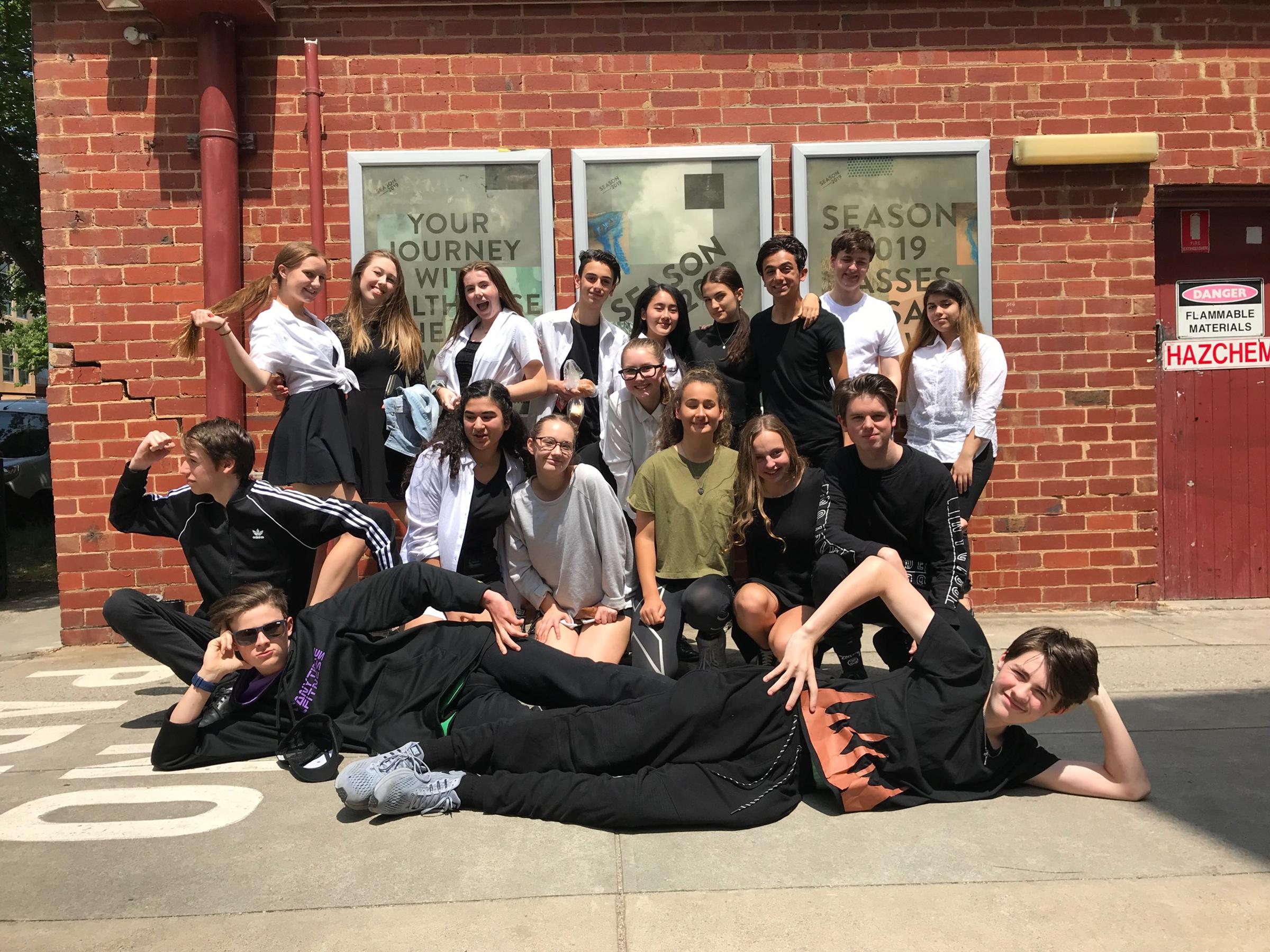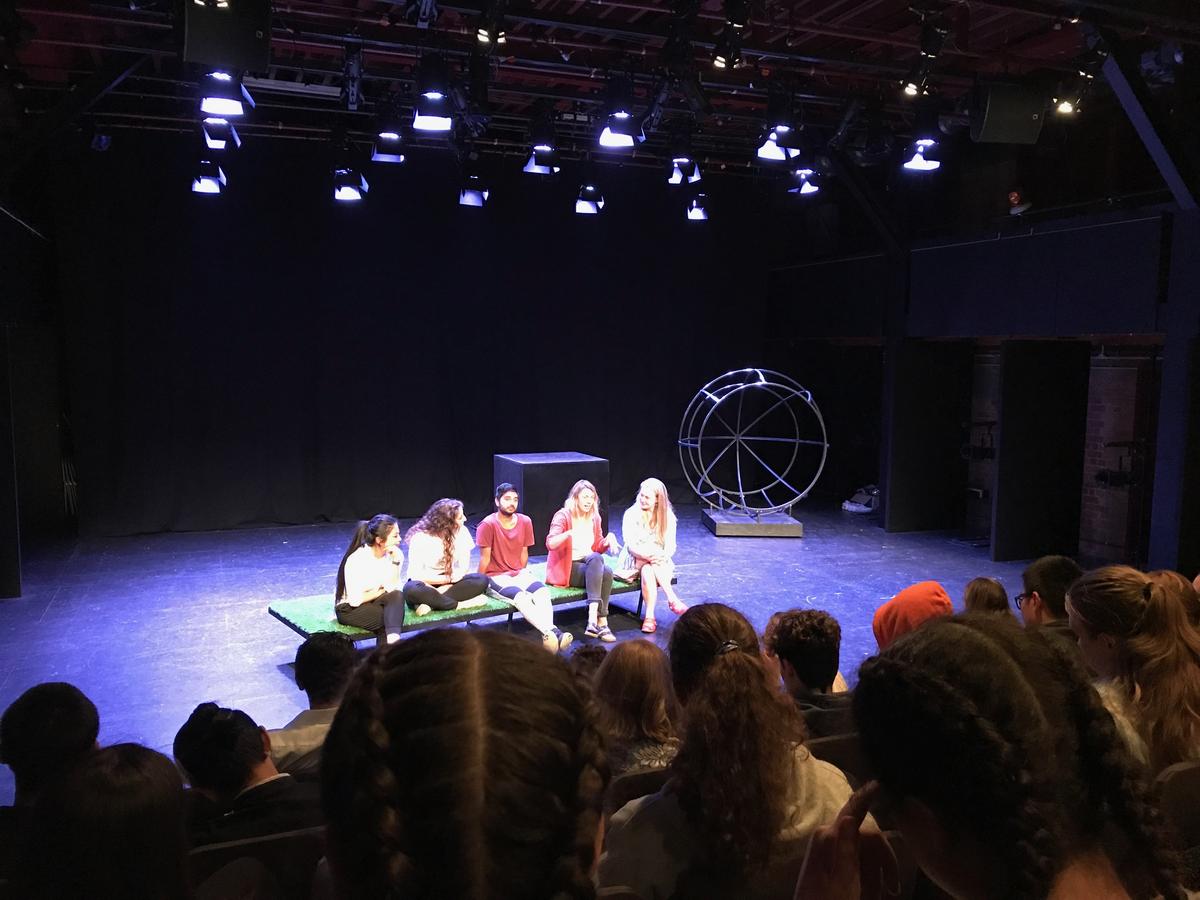SENIOR SCHOOL

Drama students participate in The Suitcase Series at Malthouse Theatre
The Year 10 Drama class participated in the Suitcase Series at the Malthouse Theatre on Wednesday. They have spent the last 6 weeks developing a 20-minute performance which they presented in front of students from 5 other school as well as actors and scriptwriters from the Malthouse Theatre. Our Year 10 Drama class’s performance was amazing and received some great feedback from the audience. After the performances students got to see a professional performance of the script that they had used as a stimulus for their own performance and participated in a Q&A session with the actors and scriptwriter after the show. Being part of a program like this is a great opportunity for the students and it was a great day which we all enjoyed. I am very proud of all of the students who participated both on the day and behind the scenes in the development of this performance.
Fiona Cowan
Year 10 Drama Teacher
Australian Science Olympiads - Physics, Chemistry and Biology
As Science is an integral part of most of our lives, from climate change, food security to disease prevention; the science that we learn today will have a significant impact on what happens on our planet tomorrow!
It was impressive to see Doncaster Secondary College Science students use their critical knowledge and problem-solving skills to compete in the Australian Science Olympiads and achieve excellent results.
An outstanding effort by Mark C. of 12 J that placed him in the top 10% with a High Distinction in both Physics and Chemistry Olympiads. There were also 3 Distinctions (next 20%) and 3 Credits (next 30%); in both Biology and Chemistry.
Congratulations to the following students for competing this year:
Mark C. 12J, Joshua W. 12A, Mayhiu (Mandy) T. 12A, Harry C. 12J, Calvin C. 12B, Parsa B-M. 11C, Joelin C. 12J, Matthew T. 12J and Dylan C. 12I
I would also like to encourage Year 11 and 12 students to do so in 2019.
Sue Hermon
Olympiad Coordinator
Science Domain
Preparing for Senior Studies
Students sometimes ask ‘what is the best way to study?’. The answer, there is no best way. An important lesson for students to learn is that everyone learns in different ways, everyone has different approaches and preferences, and what works well for one person may not work well for another. This truth applies to all aspects of effective learning – time management, research skills, writing skills and so on. There are certainly good techniques and strategies available in all of these areas, and also approaches that work well for the majority of students. However, it is essential that all students try different techniques to see what works best for them. Preferences could also change over time, so it makes sense to at least once a year stop and reflects on approaches to learning. What did you do, what worked, what didn’t, what should you change, what should you keep, and what new things could you try. This is what ‘metacognition’ is all about. It means taking the time to try and understand more about the process of learning and your role as a learner. Students who take a metacognitive approach to their learning are much more likely to improve their results. How can you find out different study techniques to try? Talk to the people around you – friends, siblings, parents – ask them what techniques they have used. Also, ask your teachers what they would recommend for their subject. You can also visit the unit on the Study Skills Handbook that covers.
Lisa Chiuchiarelli
DiSCovery Program Coordinator
Respectful Relationships Leader
Donate textbooks to College Welfare Library
Attention all year 12 students. If you have textbooks you no longer need, please consider donating them to the College Welfare Library. We would appreciate the donation, as it helps us to assist students and families in need. If you wish to do so, please drop your books off at the Library.
Sue Hayward
Curriculum Resource Manager

